Http://ForceFreeDogTraining.Info

Objectives:
- What is "Force Free" Dog Training Theory?
- Omitting positive punishment from all training plans?
- Omitting certain training tools based off of ease of misuse?
- Primarily a marketing tactic without a concrete definition or adherance to a standard?
-
The American Veterinary Society of Animal Behavior (AVSAB) - How Their Position Statement Shows Evidence of Supporting Incompetence and/or Fraud.
- Why is an investigation by the Fair trade Commission long overdue?
- Protect the professionals
- Protect the consumer - Bureau of Consumer Protection
- What are unethical and potentially illegal claims of "Force Free" theory?
- What are the consequences of "force free" advertising?
- What are the solutions?
- As long as there are extremely unqualified professionals to point to, it is easier to continue unethical marketing practices.
- Unethical marketing practices should be addressed legally
- Models based off of an unadulterated version of Steven Lindsay's LIMA guidelines.
- Teach how to properly use punishment, rather than falsely say it is not needed in dog training.
- Why is there hesitency to adhere tp truthful marketig and a true LIMA standard?
- It takes more education and experience than many professionals are willing to invest
- Training is an unregulated market. History shows that any unregulated market will be seduced by unethical practices.
Glossary
Fraud - a person or thing intended to deceive others, typically by unjustifiably claiming or being credited with accomplishments or qualities.
Incompetence - inability to do something successfully; ineptitude.
Negligence - failure to use reasonable care, resulting in damage or injury to another.
Obedience - compliance with an order, request, or law or submission to another's authority. Synonyms: compliance, conformity, submission, subordination
Force - strength or energy as an attribute of physical action or movement.
What is Force Free Dog Training?????
https://karenpryoracademy.com/about/


https://smartdoguniversity.com/force-free-training-real/
If any reasonable person will assume that "obedience" is the being used the correct context of the english language:
- It can be agreed upon that force free trainers do not believe it is ethical to train dog's in obedience and it is also scientifically accurate that the "force free" training does not employ techniques to teach the dog a consequence for "not obeying".
- Trainers are being discriminated against that are educated in the same principles of positive reinforcement based training, but also have additional education to ethically and safely train obedience.
- In some cased "force free" trainers use more "force" than ethical dog trainers, because they did not study the proper use of training tools and often choose more aversive options based simply on the look or name of the tool.
Obedience - compliance with an order, request, or law or submission to another's authority. Synonyms: compliance, conformity, submission, subordination
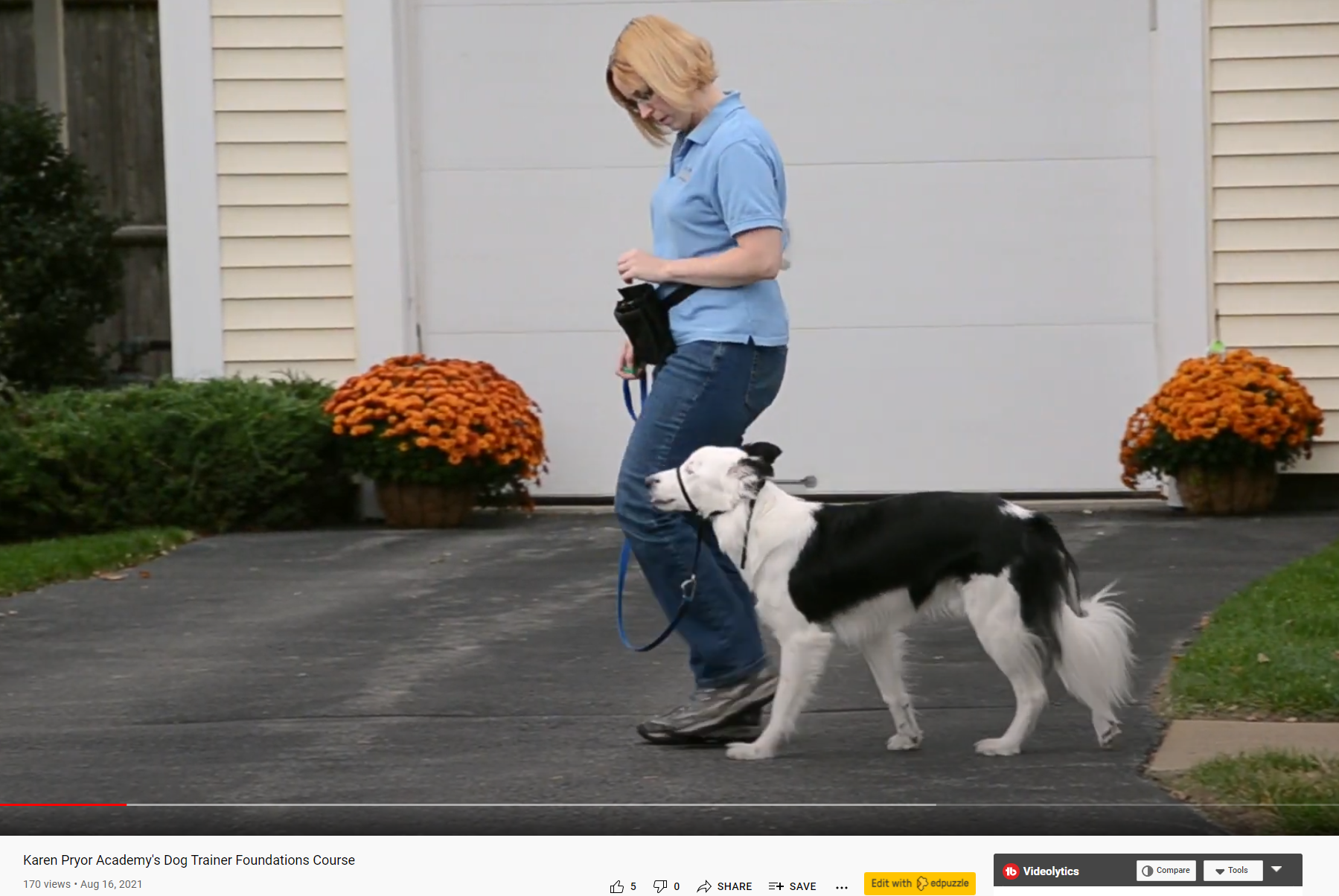
Omitting positive punishment from all training plans?
Problem here is that a "purely positive" dog training cannot legally accept money and promise obedience or offer "obedience" as a professional service.
When is it acceptable?:
- Beginner level training
- Dog sports
- Tricks
- Anything where this is a fairly predictable and controlled environment
Examples:
- sea world
- agility
- puppy kindergarten classes
- Some behavior modification cases with a disclosure.
Legal problems:
- Claims of obedience
- Potential for injury and damages
- Negligence
- Fraud
- Fair trade problems with false claims, about the superiority of only using only quadrants of operant conditioning and dismissing the Thorndike's Law of Effect, B.F. Skinners highly respected work, and common sense.
Examples of training that ethically require obedience
- Guiding eyes dogs
- Police Dogs
- Service Dogs
- Dogs with a history or propensity for dangerous behavior
- Clients that specifically request "obedience training"
Omitting certain training tools based off the consequences of misuse?
Some trainers claim to be "positive only" or "force free" in marketing but do use tools that do in fact use force and punishment, but are marketed in a way to mislead consumers and create an unfair marketplace. Sometimes they are referred to as "management tools" to deflect away from the fact that they are used to train behaviors.
Pay attention to the names - These are all equally considered positive punishment that can all equally be used with more OR less force than another. None of these are more force free than the another. They can all cause injury, pain, or fear if used the wrong way.
High-level trainers CANNOT use certain collars because they will use too much force to get the same motivation.
- Prong collar - descriptive/accurate
- Electric collar - descriptive/accurate
- Gentle leader - not accurate (head halter more accurate)
- Positively No Pull Harness - Not accurate (positively punishment no-pull harness)
The only unbiased and ethical guideline is based off of Steven Lindsay's literature on LIMA (Least Intrusive and Minimally Aversive)
There is a reason why handlers of working dogs CANNOT use no pull harnesses and gentle leaders.
Primarily a marketing tactic without a concrete definition or adherence to a standard?
- Victoria Stilwell
- Knowingly accepts all tools off camera, but on camera and business all decisions are influenced by market approval.
The American Veterinary Society of Animal Behavior (AVSAB) - Their Position Statement Shows Evidence of Supporting Incompetence and Fraud.
Based on current scientific evidence, AVSAB recommends that only reward-based training methods are used for all dog training, including the treatment of behavior problems.
From their website: https://avsab.org/
Their statement: https://avsab.ftlbcdn.net/wp-content/uploads/2021/08/AVSAB-Humane-Dog-Training-Position-Statement-2021.pdf
- No requirement for dog training education or experience
- No requirement for further education, only pay dues
- Benefits include recommendations for clients
Why promote a fraudulent position statement?
opinion: Could it be so unqualified veterinarians can compete with ethical dog trainers for market share?
All recommended organizations use "pseudo-science" terms and use only "management devices".
Could it be commercially influenced?
Trainers with backgrounds in higher-level education such as the
Karen Pryor Academy and Jean Donaldson’s Academy for Dog
Trainers, as well as involvement in organizations such as the Pet
Professional Guild, International Association of Animal Behavior
Consultants, Victoria Stillwell’s Academy for Dog Training, and FearFree Certifications should be recommended whenever possible.
1. Who qualifies for affiliate membership?
Qualified applicants include those holding a doctoral (PhD) degree in animal behavior, or a related discipline, from an accredited college or university, or who meet the following exceptions:
- those whose memberships were established prior to 2002, when affiliate status required graduate educational training in animal behavior or a related discipline from an accredited college or university
- those whose memberships were established prior to 1986
Merck Veterinary Manual (A reference guide for veterinarians):
On "Behavioral Problems of Dogs": https://www.merckvetmanual.com/behavior/normal-social-behavior-and-behavioral-problems-of-domestic-animals/behavioral-problems-of-dogs
The process to diagnose behavior problems and their treatment with behavior modification and drugs has been previously described (see Treatment of Behavioral Problems). If the problem is determined to be a normal but undesirable behavior, the owners will need counseling on how to effectively provide for the pet’s needs and how to reinforce what is desirable while preventing what is undesirable. For most canine behavior management problems, counseling from veterinary staff or trainers and quality resources are required, as well as hands-on guidance from a trainer. Trainers should be selected based on their credentials and screened to ensure they use reinforcement-based training techniques. Positive punishment−based techniques should not be used in training, because at best they serve only to suppress undesirable behavior and can lead to fear, avoidance, and even aggression. Management issues include inappropriate play (eg, nipping or mouthing of people); unruly behavior (eg, pulling, lunging, jumping up, mounting, overactivity); and some forms of barking, destructive behaviors, and housesoiling.
Prevention can be most effectively achieved by identifying and avoiding any situation in which the dog might be exposed to the stimulus. A leash and head harness, leash and body harness, or verbal commands (when effective) can also prevent access to the stimulus. If avoidance cannot be ensured and aggression is a possibility, then a basket muzzle might be the best alternative.
By identifying a range (gradient) of the dog’s most favored rewards, the most desirable can be used for training and shaping new behaviors that approximate the final goal; less-motivating rewards can then be used to ensure immediacy and timing of previously learned commands. In addition, a way to minimize and control the intensity of the stimulus will also need to be designed (eg, volume, distance, location). Exposure exercises can then be implemented by setting up situations in which high-value rewards are used to reinforce the desired behavior and condition a positive response during exposure to low-intensity stimuli and gradually proceeding through more intense stimuli. Setbacks can be avoided by determining the level of stimulus intensity at which a calm and positive outcome can be achieved and reinforced, and with the use of management devices such as a head halter (sit, reorient head, turn and walk away) or front control body harness (turn away from the situation) to ensure safety and success. Drugs and natural therapeutics might be used concurrently in dogs with excessively intense or abnormal behaviors to enable the successful implementation of behavior modification.
Should we expect better competency? Or is this fraud? Whatever the reason, it is not acceptable.
The profession should not be a free for all and unfortunately mass incompetency and low standards is creating an environment which is unfair to those that represent what a reasonably informed professional should be.
Facts
- All trainers that reflect the standards described by the AVSAB position statement are incompetent at training dogs to be obedient and therefore should not offer this service to paying customers.
- If a trainer following these standards is hired to train obedience and an owner (falling) or dog (hit by car) is injured they are considered negligent and should be liable for damages.
- Members of the American Veterinary Society of Animal Behavior have a lot of requirements to be part of the organization, but experience and knowledge of the actual mechanics of all common training tools is NOT one of them. This includes all animals. Horses and dogs included. To give a 100 accurate analogy, if the statements were accurate for all animals it would be acceptable to say that there is no use for reigns while riding or training a horse. Leading with a carrot on a stick should be more effective.
Biased Science
- Why wouldn't they do studies that show dogs obey best when you use BOTH reinforcement and punishment? Why compare a gas pedal and a break pedal of a car?
- Why tell us the obvious. Of course punishment cause more stress than reward, do you need a study to know that? That is why there are studies that teach how to limit stress during punishment. That is why professionals should be educated.
Studies that teach effective punishment.
The AVSAB recommended schools
Jean Donaldson

Conduct Standards
Academy staff, students and graduates must commit to our Code of Conduct. Our philosophy is that dogs have the right to be trained without aversive stimuli, to feel safe, have rich lives and to engage in normal dog behavior. The families of dogs have the right to competent, professional, and fully trained practitioners and to be made aware of the potential effects of any training or behavior modification approach so that they can give informed consent. We teach dogs and coach their families kindly and efficiently, and we act as the translators between the two cultures: dog and human. We treat fellow students, graduates and staff with professionalism and respect, and an assumption of goodwill.
Aversives-Free Training Philosophy
While The Academy recognizes that it is still legal in most jurisdictions to use P+ and R- tools and techniques on dogs, there is ample evidence in both the pure and applied literature that training, dog wrangling and behavior modification can be accomplished without the use of aversive stimuli and their attendant side effects and impact on dog welfare. Students, staff and graduates of The Academy practice and endorse training, wrangling and behavior modification that does not employ pain, fear, startle, electric shock, intimidation, strangulation or other forms of P+ or R-.
Is it "force" free or without positive punishment? Why won't she say positive punishment?
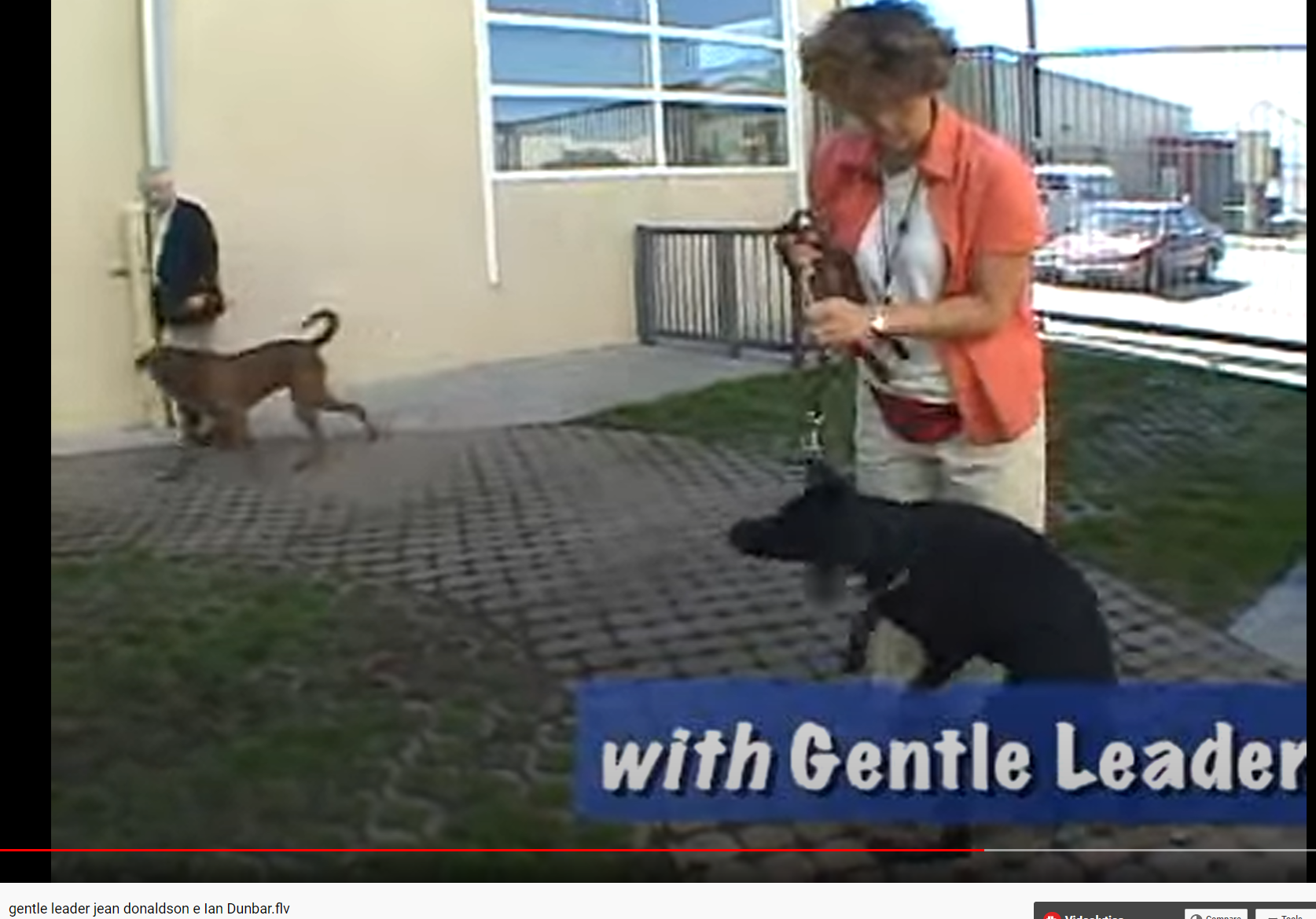

Victoria
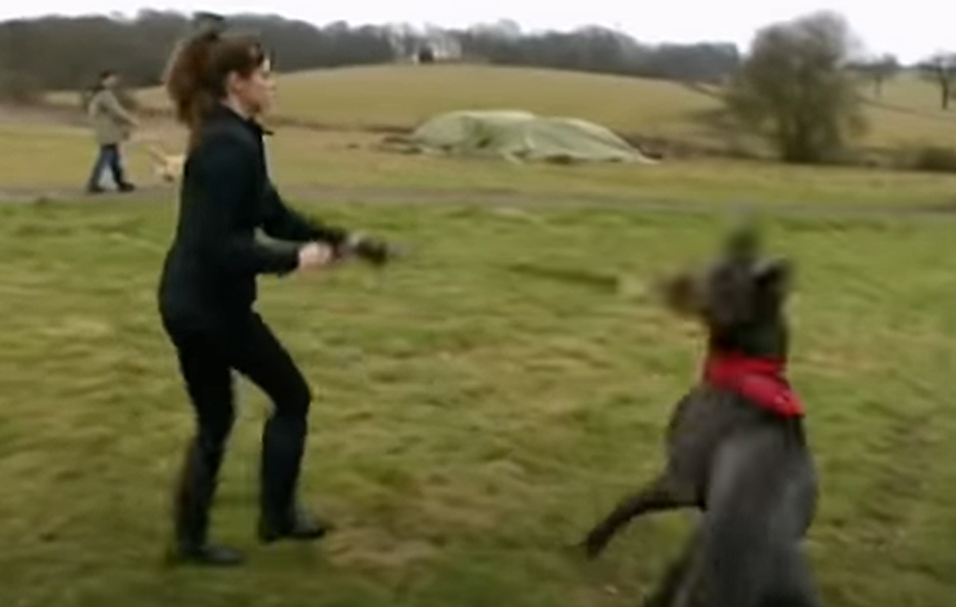
Why won't Ian Dunbar say positive punishment?

False Statements
- Training collars are abusive?
- Her statements to me
- Agreed with my use, but cannot publically admit to it due to losing "sponsors"
- Asked me to be a recommeded trainer on her "network" after I admitted to using them.
- Exploited and recommended my training after I demonstrated training with these collars on her show.
- Asked me to be on the next episide to help teach a child about fair treatment to a dog.
- Claimed to have designed a "positive" no pull harness after borrowing a petsafe no-pull harness from for her show.
- After she started selling a rip-off of the petsafe harness we showed her how to use, and after her episode aired she decided to publically claim I had an inferior company and should have used a "positive-based" trainer.
- Redesigned it to be more aversive. No signs of positive reinforcement used in instructional videos. Only positive punishment and negative reinforcement.
She did not design it, nor is it "positive reinforcement"
Chafing is very common with no-pull harnesses.
- https://www.reddit.com/r/Dogtraining/comments/1meakj/problem_with_easy_walk_harness_chafing/
- https://petexpertise.com/blogs/news/prevent-dog-harness-chafinghttps://youdidwhatwithyourweiner.com/a-cautionary-note-about-harnesses-and-active-dogs/
- https://www.dogforum.net/dog-general-discussion/34663-easywalk-harness-chafing-my-dogs-arms.html
Positively No Pull Harness
The new version is which apparently is her design put velvet to help with chaffing so that it can be used with MORE force under the armpits:

Pet Professional Guild - A fraud organization?
Founded by business major, Niki Tudge, to support her "force free" franchise.
pet professional guild (network of frauds):
first had a franchise (with no education), then made the guild, and then made career college one year after taking online course.
the founder advertises her own franchise on the site https://dogsmith.com/ (force free)
So vets only recommend them?
What they recommend (halters, no pull harnesses):
The late Dr. Sophia Yin, is a veterinary behaviorist and is considered a pioneer in the "force-free" marketing community.
From her own response to the video in the comments:
"We train dogs to focus on us and engage in fun behaviors through reward-based training in fearful situations so they also learn a positive association with the situation. We avoid methods that use force or punishment because the dog may learn to focus out of fear of getting a correction. As a result, the dog is not likely to develop a positive association with the scary dog, and greater reactivity and fear are likely to occur. "
However, if you understand the basics of operant conditioning and training tools her "force-free" training plan uses more punishment and more force than almost any training video you can find on the internet:

What are the solutions?
- As long as there are extremely unqualified professionals to point to, it is easier to continue unethical marketing practices.
- Unethical marketing practices should be addressed legally. Claims should be clear and truthful.
- Require professionals use models based off of an unadulterated version of Steven Lindsay's LIMA guidelines.
- Teach how to properly use punishment, rather than falsely say it is not needed in dog training. Demand professionals understand how to use all common training tools. Banning or ostracizing tools DOES NOT prevent abuse.
The Fair Trade Commission should be involved in ceasing the claims of these entities. Their website is here: https://www.ftc.gov/
If you are part of a professional organization or you are paying money to a university with a dog training degree (such as SUNY Cobleskill) you should demand that action be taken against AVSAB and the organizations that they support.
Claims - You can say these with zero consequence. This can not be said about you.
- "Force free" trainers and organizations that support the claim of AVSAB, create an unfair marketplace based on fraudulent claims.
- Force free trainers are fraudulent if they take payment for "obedience training" and claim that they can be successful with this service.
- Force free trainers are fraudulent if they claim to be "force free" and accept payment, but then use aversive tools such as no pull harnesses and gentle leaders to administer positive punishment in their training plan.
- Victoria Stilwell is actively running a fraudulent business and school.
- Jean Donaldson is actively running a fraudulent business and school.
- Karen Pryor Academy runs a fraudulent business.
- Niki Tudge founded a fraudulent organization.
- Any professional dog trainer that claims to be positive only or force free and claims to teach dogs obedience as a service is a fraud (tricks, sports, etc.. are ok).
Why must this be addressed?
- Organizations have been using the fraudulent claims of "force free" training to discriminate against ethical dog trainers for many years.
- Professional dog training schools are taking money from hopeful professional dog trainers without teaching them the techniques to be competent in obedience.
- Many consumers are not protected from incompetent trainers and suffer financial loss and damages as a result
- There is a rise in "hack training" with zero standards that fill the void created by underqualified "credentialed" trainers.
Can an individual successfully litigate against a "force free" entity?
- Are you a dog owner that paid money to a "force free" business under the impression that the dog will become obedient.
- Did you pay money to a school to learn how to be a professional dog trainer that mislead you into thinking you could be successful being a "positive only" or "force-free" dog trainer in training obedience. Did you spend thousands of dollars investing in a business that ultimately failed because you were mislead? Were you denied an appropriate education based on deceptive marketing?
- Are you a business that is being discriminated against because of the fraudulent marketing practices of a "force free" entity?
Further reading:
Excellent fact-based article by a highly qualified author:
Purely Positive, Force Free, and Science by Mark Plonsky, Ph.D
Related lectures:
Unethical behavior and FTC violations by Karen Overall:

The unadulterated LIMA:

The truth about training collars:

An example of how I protected myself by being ethical:
Unsolicited Threat from Zak George
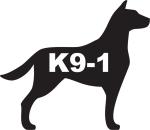



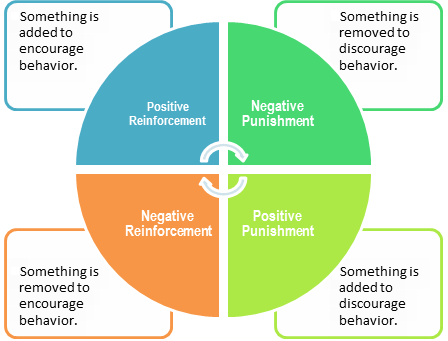
Responses